In the midst of summer, the water sports are what we love to do best, aren’t they? Indeed, scuba diving and snorkeling are often brought up to the top of the list for many travelers! Scuba diving is an amazing sport to add to any travel adventures, just like snorkeling!
Preparing a scuba diving oriented holiday can be overwhelming at first for the beginner diver. This article will walk you through the first steps of planning toward a scuba diver certification. What are the things to consider when getting scuba certified? How healthy or fit do you need to be to scuba dive? What scuba gear to buy to be off to a good start?
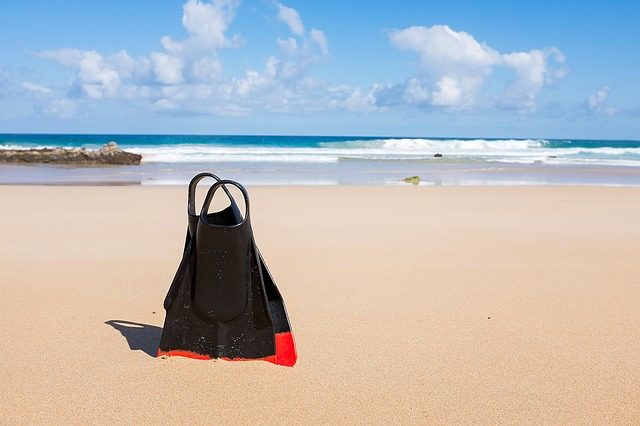
1. Decide to become a diver
I felt like putting this first tip ahead as scuba diving has long been one of those things I wanted to do, but it took forever to me to actually do it. If you’re feeling scared or reluctant to get out of your comfort zone and into the deep blue, simply know one thing… it’s normal! I believe we all go through this stage… and I still am indecisive when I haven’t dive in a while and that it’s time to head to a dive center.
Book a lesson. Book an introductory dive day. Do it, and then go step by step. You’ll find yourself immersed in a whole amazing new universe.
2. What international diving agency to choose?
PADI versus SSI, the eternal question, and a question that has been answered more than once, so I will simply redirect you to Scuba World for an interesting read on the differences between PADI and SSI. Plus, note that some dive centers will be affiliated to both agencies, leaving the choice to you.
3. Tips on how to choose a scuba diving school
First, you need to pick a location in the world where you want to take your first dives. The most important thing to consider is that you need a minimum of 3 full days to go through the open water diver certification. So, make sure you pick a place, including an accommodation, where you are happy, cozy and getting good night sleeps!
Secondly, of course, there are places and schools that are cheaper than others and that might influence your decision. Koh Tao, for example, is basically known as the capital of scuba certification as the diving is low cost, but choosing a good dive center, not a diver’s factory can be a challenge.
To make sure that you are choosing a great scuba diving school with good values, professional instructors, and a proper organization… read online reviews! Do so consciously, whether it is on Divezone, on Google or Tripadvisor for example.
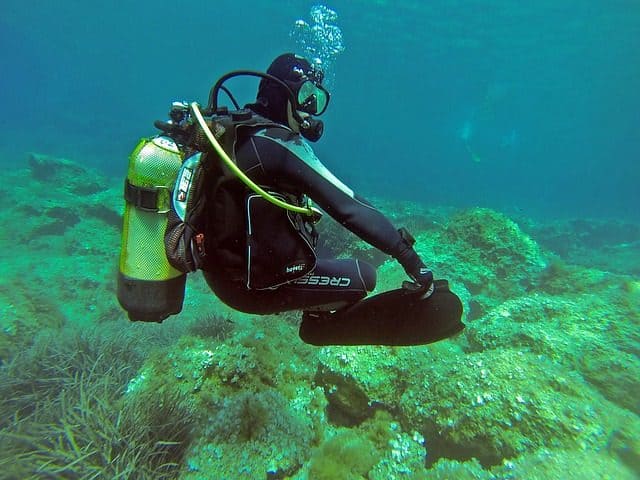
4. Tips on the fitness level to have to scuba dive
Basically, you don’t have to be an athlete to scuba dive, but there’s a bottom line of fitness which you must have. Indeed, your cardiovascular health must be on point – and no, this doesn’t mean being able to run a marathon.
Heading to the swimming pool once or twice a week can be a great preparation when looking forward to becoming a scuba diver. Yoga exercise will also help strengthen and stabilize your body as well as to have a great control over your breathing. In fact, yoga can help improve your air consumption and buoyancy once you’re a diver.
5. Tips on choosing the right scuba diving gear
We have countless pages on how to choose proper diving gear when you’re ready to buy your own. First, if there’s one piece of diving gear you should buy first, it’s a mask and a snorkel. It’s simple, the mask will last you forever and be your first “beach-ready” tool! Plus, they both are small and fit well in any luggage!
Secondly, depending on where you will mostly be diving, a wetsuit might be another piece of equipment to buy. Consider the climate of the region where you plan on traveling and make a proper decision. You should also consider the type of traveler you are. For example, if your travel involves long journey’s of backpacking, you want to keep it light, so I would rent the equipment rather than buying it.
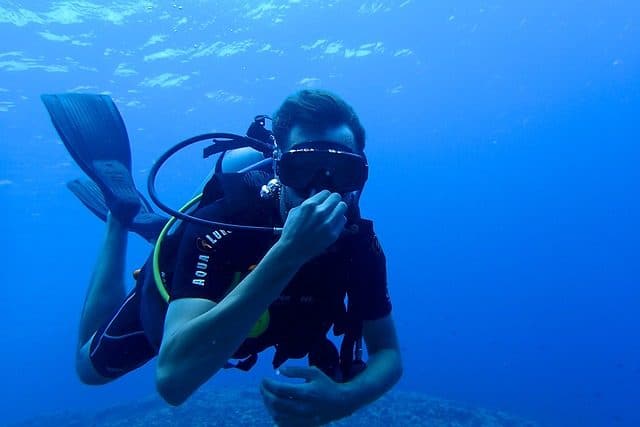
6. Ask questions – there are no silly ones!
I remember asking so many questions, often unrelated to one another, when I did my open water training. We often feel like our questions are silly, but most of the time, they’re totally relevant and knowing the answer to them will be a huge help in some stressful situation. So, ask your instructor every question that you have and listen to the answer carefully.
7. Tips regarding air consumption and buoyancy
Either during the pool lessons on the first dives with sandy bottoms, make sure you practice your breathing skills lots. Indeed, it’s one of the first things a beginner diver should master: its neutral buoyancy! It’s part of how to be a responsible diver as it keeps lots of accidents from happening.
8. Tips to avoid/prevent panicking
Many reasons can lead a diver to panic while scuba diving: an unexpected sighting, feeling sick, or simply the sudden consciousness of being so deep underwater. So, panic can occur quite unexpectedly and to simply be prepared and aware of this can help you regain control over the situation. Personally, I visualize the dive, and potential reasons I could panic for. This visualization method definitely helped me to remain calm in the water during my first few dives. Also, use this little voice in your head to remind you to keep breathing normally, it’s the most important thing to do.
Any other tips you would give to a beginner diver? Drop us a line in the comment section below! ⇓
 Destinations
Destinations




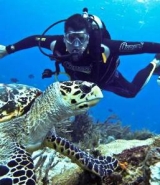
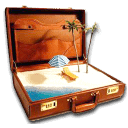



It is helpful to know that you should visualize the dive. This is a great way to make sure that you will not panic later in the dive itself and hurt yourself. My sister would love knowing this as she looks into getting dive training for her next vacation. LINK REMOVED
It is very useful information about how to dive scuba.it is nice blog. Malvan is also best spot for scuba. I enjoyed water sports in malvan.
LINK REMOVED
Awesome Blog! LINK REMOVED
I’m not a diver at all and I read this all the way to the bottom. Thanks Myryame and Divezone.
I live near Devils Lake, Wisconsin. My friend took me wet suit snorkeling once and showed me all the freshwater fish – super cool. Myryame’s article has inspired me to start watching online for used wetsuits.